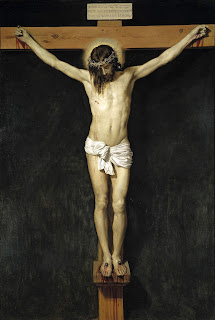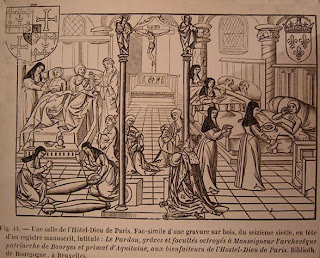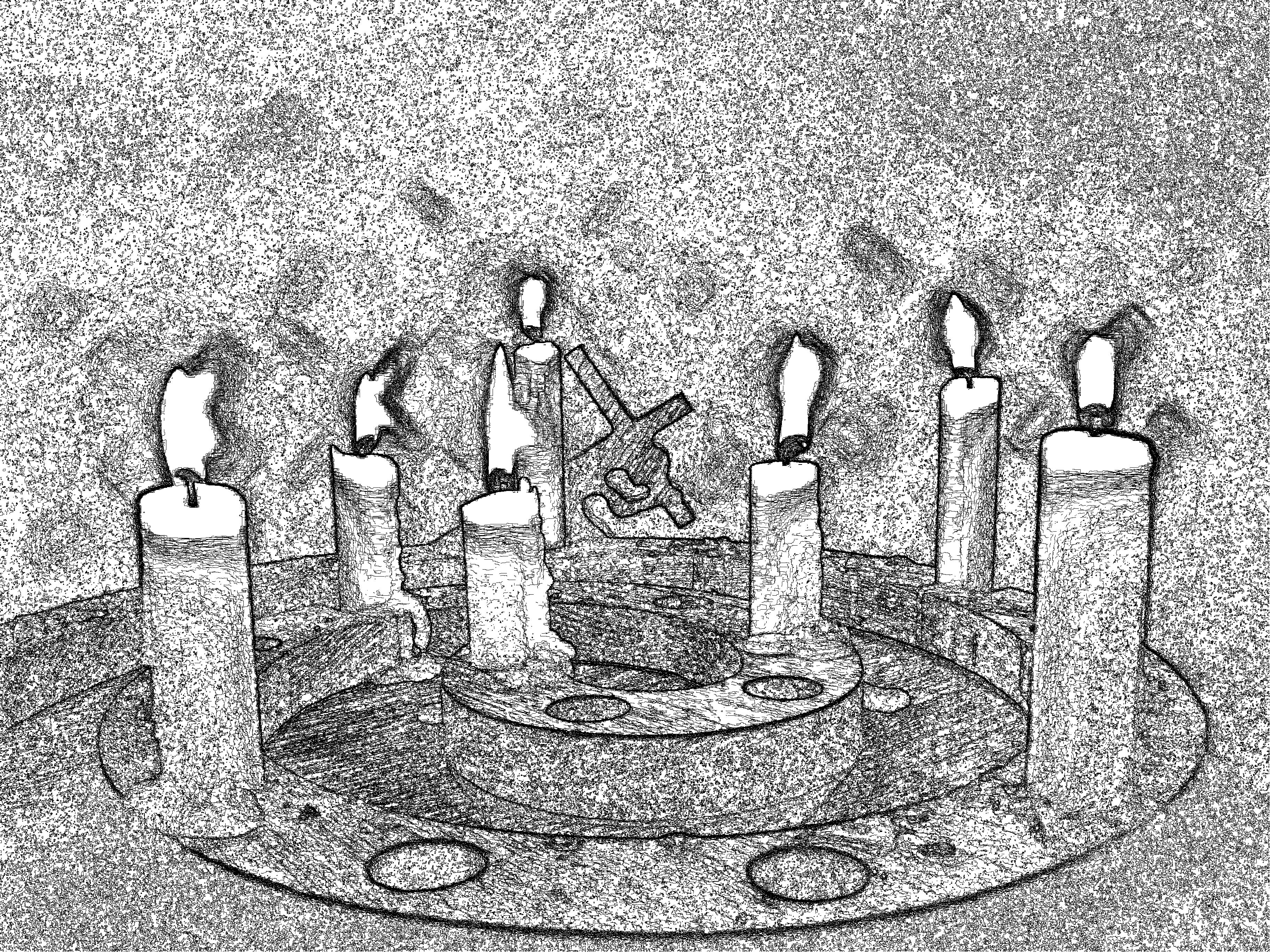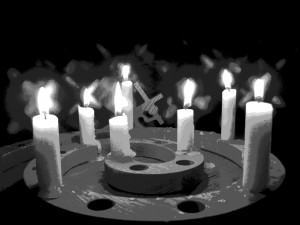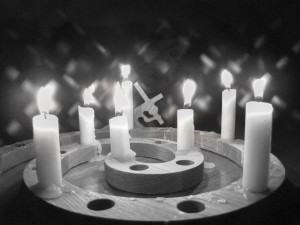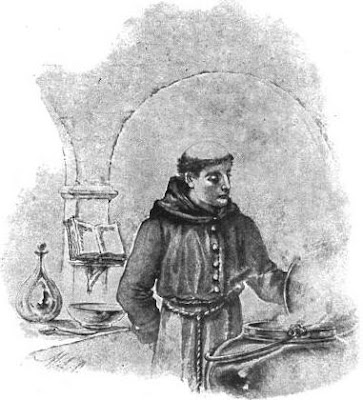He buried his wife this Saturday.
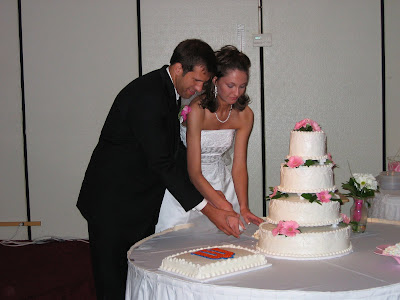
I sat at the feet of this younger brother of mine as he said goodbye to his wife of four years, the mother of his one-year-old son.
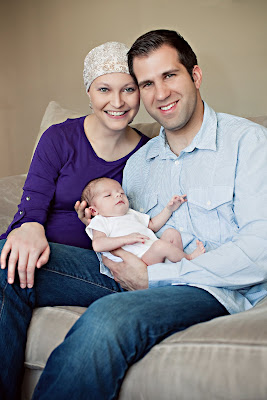
I watch him struggle through despair, depression, doubt as he faces a long road of raising his son alone.
I watch my nephew cry and cling to his daddy, looking for his mommy and feeling afraid that his daddy will leave him too.
Through this long struggle, through one piece of bad news after another, through the next days and months and years of memories, where is God?
When all pleas seem to go unanswered, when even let the end be peaceful is ignored, what are we to think?
What do I really believe about God in all of this?

God’s Words tell us clearly that there is pain, there is heartbreak in this world. We should not be surprised.
More often than not, God chooses not to save His people, chooses not to spare them sorrow and hardship. Hebrews 11 gives a long list of those who were killed or lost ones they loved, Jesus’ closest friends died martyr’s deaths, even His earthly father died without His intervention.
I have pondered long and hard this question of what I believe about God in the midst of “it wasn’t supposed to be like this”. Here is my conclusion.

I know my God, His character, well enough to trust Him when I don’t understand, when I cannot see in the darkness. I know, from what He has said about Himself and from what I have seen, that He is always good and always love. I know that, if we only knew the reasons, we would adore Him for what He does.
God promises that we will have trouble in this world. He also promises that if we are grateful to Him He will give us peace. He doesn’t promise that He will take the pain away but that we will be at peace, that we will have joy.
Isn’t that a much bigger promise?
No matter what, God is still God.
Will I only praise and thank Him when He does what I like? Will I only accept from Him what I deem to be good?
When I deeply think through the idea of declaring my circumstance to be bad, it seems incredibly arrogant.
How can I think that I know better than God what is good? How am I more capable of naming something to be good than the One who is good?
Will I trust that God has a beautiful, amazing plan only when I can see the beauty of it? Either God is God, and capable of having plans and reasons that I cannot comprehend, or He isn’t God, and I am silly for blaming a myth. There is not really any in-between place for the things with which I do not agree.
…if I go to Jesus, he’s not under my control either. He lets things happen that I don’t understand. He doesn’t do things according to my plan, or in a way that makes sense to me. But if Jesus is God, then he’s got to be great enough to have some reasons to let you go through things you can’t understand. His power is unbounded, but so are his wisdom and love…He can love somebody and still let bad things happen to them, because he is God–because he knows better than they do. If you have a God great enough and powerful enough to be mad at because he doesn’t stop your suffering, you also have a God who’s great enough and powerful enough to have reasons that you can’t understand.
~ King’s Cross by Timothy Keller
God is God, and since he is God, he is worthy of my worship and my service. I will find rest nowhere else but in his will, and that will is necessarily infinitely, immeasurable, unspeakable beyond my largest notions of what he is up to. ~ Elisabeth Elliot

Of course he’s not safe. Who said anything about being safe? But he’s good. He’s the king. ~ Mr. Beaver as told to C.S. Lewis in The Lion, the Witch and the Wardrobe

When faced with the fiery furnace, Shadrach, Meshach and Abednego told King Nebuchadnezzar that
If we are thrown into the blazing furnace, the God we serve is able to save us from it, and He will rescue us from your hand, O king. But even if He does not, we want you to know, O king, that we will not serve your gods or worship the image of gold you have set up. ~ Daniel 3
When Job lost all of his children and all that he owned and was himself in great physical pain, he declared
Though he slay me, yet will I hope in Him. ~ Job 13.15
No matter what, I will praise God and offer Him my gratitude, my sacrifice of praise.
God tells us over and over in His word that He has a beautiful plan for humanity and creation as a whole.
And that he has a beautiful plan for each of our lives.
Sometimes I doubt this promise, this truth.
And then I look at Jesus, at His cross.

I’ve been clinging to Romans 8.32 through all of this:
He who did not spare his own Son, but gave him up for us all–how will he not also, along with him, graciously give us all things?
If God ever had to prove Himself, prove His love for us, prove that He is taking care of us, He has more than proved it all through the cross.
I’ve also been thinking a lot about Hezekiah. In II Kings 20, he pleaded with God to “change his story”, to give him more life when God had told him (through Isaiah) that he was going to die. God did change His mind that time, gave him fifteen more years of life. And in that fifteen extra years, Hezekiah’s son Manasseh was born. This son that wouldn’t have been born if Hezekiah hadn’t asked God to change the ending of his story ended up as king and “lead (Israel) astray, so that they did more evil than the nations the LORD had destroyed before the Israelites”. ~ II Kings 21.9
Our desired story ending versus God’s desired story ending.
Perhaps, just perhaps, God really does know best. Perhaps He does know which story will bring about a beautiful, redeemed, transfigured people and creation.
When through the deep waters I call you to go,
The rivers of woe shall not overflow;
For I will be with you, your troubles to bless,
And sanctify to you your deepest distress.
The soul that on Jesus has leaned for repose,
I will not, I will not desert to its foes;
That soul, though all hell should endeavor to shake,
I’ll never, no never, no never forsake.
~ How Firm a Foundation, att. John Keith, 1787 (modernized)
credit for images: Lion photo, painting by Simeon Solomon, Cross photo


